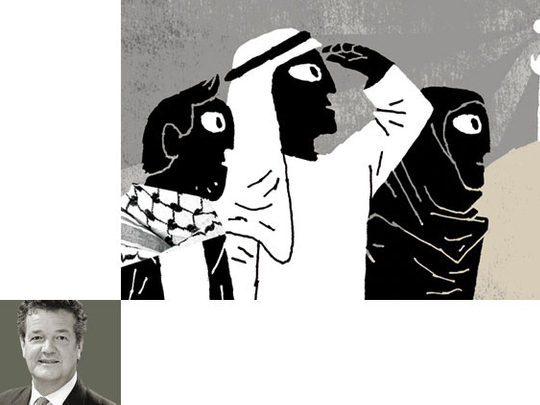
It is exciting that despite the political turmoil in the Middle East, the young people of the region feel that things will get better. It is important that this optimism exists despite the continuing violence of the various civil wars and the betrayal of the liberal hopes of the Arab Spring as the military with its superior organisation and Islamist parties grabbed control of the political process in several countries.
An average of more than 65 per cent of the population of any Arab state is under 25 years of age. These are the young men and women who are going through their final education and starting to take their place in the workforce of the region. In only a few years’ time, this huge number of young people will be taking control of their futures. The old repressive regimes will be unable to stunt their hopes, as the power of the changes brought about by the Arab Spring have showed. In a few years, the young Arabs of today will tell their elders where they want society to go, which is why it is so important to understand their aspirations.
These are the people surveyed in the annual Arab Youth Survey of Asdaa Burson Marsteller and it is an important social discovery with significant political implications that an average of 74 per cent of young Arabs agreed that “our best days are ahead of us”. The lowest poll came from Egypt, but even there, 63 per cent thought things would get better. This optimism is a huge benefit for the political leaders who are willing to work with it and give their young people a significant stake in running their country.
In line with previous surveys, politics is not the top concern of most young people who focus on their personal ambitions. Getting a fair wage is their highest priority and 41 per cent in the Gulf, and 46 per cent in the non-Gulf Arab countries, are very concerned about unemployment.
However, the politics of the Arab Spring has had a major impact. A remarkably consistent 87 per cent across all 15 states surveyed “agreed” or “agreed a lot” that they were more proud to be an Arab after the events of the Arab Spring. This reflects the knowledge that after years of despair and inertia, every Arab now knows that things can change if people come together to make the effort. Nothing can take away from the fact that they have all seen the collapse of the politically bankrupt regimes in Egypt, Tunisia and Libya and that they have been inspired by the determination of the Syrian opposition which has refused to give way to the soldiers of Bashar Al Assad, and will not accept that their impulse to change their state should fail.
However, the optimism caused by this recognition of the ability to effect change is matched by a high degree of concern about the future in the 15 countries, with more than 95 per cent of young people being either anxious or uncertain about the recent changes in their country and the Arab world. The changes in the region’s politics have not changed the socially conservative nature of Arab society, even among the young. When asked what influenced their outlook on life, 73 per cent listed their parents, 69 per cent listed religion, 66 per cent their family and 49 per cent their friends. A substantial 60 per cent agreed with a blunt statement that traditional values mean a lot, which was contrasted with 40 per cent who agreed with the statement that traditional values are outdated.
A remarkably small 33 per cent listed community leaders, 31 per cent listed writers and authors and 30 per cent listed politicians, government leaders and business leaders as having influence on their thinking. This interesting question shows the lack of any overall political or inspirational social thinkers in the phenomenon of the Arab Spring. What started in 2011 and toppled so many governments and caused huge political change was not a deep social shift in society, but an outpouring of frustration at the stupidity and self-interest of military and other regimes which had hung on to power for so long.
The Arab Spring was not like the 1970s in Europe and North America, when singers and poets inspired a generation of young people to seek profound social change and caused new attitudes to personal relationships and a withdrawal of automatic respect for political leaders. This is not what has been happening in the Arab world in the past two years and the Arab Youth Survey makes it clear again that the political change that young Arabs are looking for is not accompanied by a desire for major social revolution.
The major concerns that showed recognisable increase from last year are the rising cost of living and threat of unemployment and the biggest obstacles facing the Middle East are civil unrest and lack of democracy.
The politicians who will win long-term popularity from Arab Spring will be those who recognise that their largest constituency (young people) wants an end to the chaos and a recognition of the inclusive right to seek ordered political change. Too many Arab leaders seem to have missed this and the Arab Youth Survey is a welcome reminder to them of their larger responsibilities.










